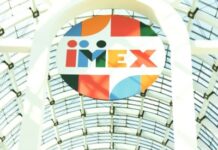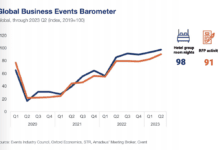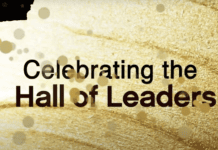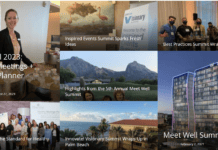
The Events Industry Council’s Sustainable Events Standards have gotten an update.
The Events Industry Council (EIC) Centre for Sustainability & Social Impact has launched an enhanced version of its Sustainable Events Standards designed to make it easier to use and to recognize innovation and excellence. It also provides an updated Sustainable Events Standards framework to help event organizers, as well as suppliers, move forward on their journey towards both individual and industry-wide sustainability. This framework encompasses industry-wide requirements, as well as those specific to event organizers and industry suppliers.
However, the industry-wide Sustainable Events Standards criteria have been replaced with a Foundations Level, a move designed to put a greater emphasis on education, tools and resources planners and suppliers can use to support industry-wide adoption of the Sustainable Events Standards . “We know that for many organizations, getting started in sustainability and social impact can seem daunting,” said Mariela McIlwraith, CMP-Fellow, CMM, Chief Sustainability Officer with the EIC Centre for Sustainability & Social Impact. The new Foundations Level certificate “provides the guidance needed to develop the policies, plans needed to start the journey.”
There are now eight Sustainable Events Standards, including a new Integrated Property standard that has been added to the existing Event Organizer, Accommodation, AV/Production, Destination, Exhibition Services, Food & Beverage and Venue standards. This new standard incorporates elements of accommodation, venue and F&B for properties that offer all three of these services. Each Sustainable Events Standard has four levels of achievement: bronze, silver, gold and platinum. Those who shoot for certification have to demonstrate how they meet each criterion under each standard.
Sustainable Events Standards Criteria for Event Organizers
For event organizers, the Sustainable Events Standards criteria are arranged in categories such as Internal Practices, Climate Action, Supply Chain Management, Accommodations, Meeting Venue, Food & Beverage, Destination, Audiovisual/Production and Exhibitions. The standards, and the criteria to meet them, are based on a recognition that sustainability is a shared responsibility between event organizers and providers. While event organizers can complete many of the criteria on their own, EIC recommends that event organizers work with suppliers when going through the certification process because a sustainable event is, like everything else to do with events, something that depends on all involved.
While the criteria to meet the event organizer standards may seem daunting, the update provides more clarity on the criteria themselves, as well as guidance on how to meet each criterion. For example, the Event Organizer Internal Practices Criteria #5 (EO.IP.5), Sustainable Supplier Selection, explains that organizers must choose suppliers that already have EIC SES certifications or the equivalent, and that these certifications must be audited by a third party.
In another example, EO.IP.18, which covers event signage, explains that it entails managing the impact from event signage materials, including selecting environmentally preferable options such as recycled items, reusing signage, using digital alternatives, and avoiding foam core, rigid PVC and vinyl signage materials.
In the Climate Actions area, the criteria offer even more guidance. For example, under EO.CA.1, which pertains to staff travel policy, it suggests considering strategies such as reserving direct flights, encouraging the use of public transportation, reserving hotel rooms near the venue, and offsetting carbon emissions. In some areas, such as Accommodations, event organizers will have to rely more on their supplier partners to complete the criteria, which relate more to what the property does in terms of scent-free policies, linen reuse programs, reducing single-use-plastics, use of environmentally preferable cleaning products — down to whether the hotel uses recycled content toilet paper in its guest rooms and public areas.
McIlwraith said: “As an industry, we are making some progress in the areas of environmental action and social impact, but the reality is we need to do much more. The standards form a comprehensive framework and provide specific guidance in the areas of organisational management, marketing, communication and engagement, climate action, materials and circularity, supply chain management and social impact.”
For more information on the Events Industry Council, visit the EIC website.
You May Also Be Interested In
Sustainability a Growing Planner Priority
EIC Welcomes First Online Sustainable Event Professional Certificate Graduates
Our 10 Favorite Sustainability Articles










